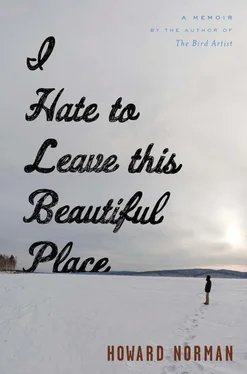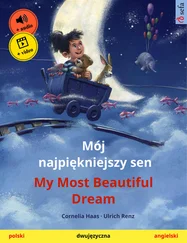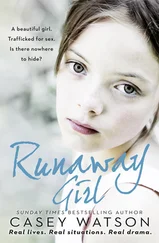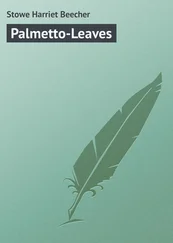Basically, I confessed all my crimes by indirection — that is, by trying to blame someone else. “Now I remember the book,” I said. “It was about how to trap wild birds. So, what I think is that the man from the Union High stop is the one who killed the swan in the newspaper.”
“Interesting theory, Sherlock.”
“Which Sherlock Holmes should I start with, do you think?”
“ Hound of the Baskervilles. Without a moment’s hesitation, Hound of the Baskervilles. ”
“Okay, I’ll start with that one, then.”
“How many interlibrary return forms do you think you’ve filled out so far this summer, give or take?”
“I don’t know.”
“Take a wild guess.”
“Maybe a hundred.”
“Say, in theory, you were to screw up just one time out of that hundred. I’d bet most anyone would chalk that up to normal human error, don’t you think? I mean, I’ve fallen asleep in church more times out of a hundred than that. Nobody’s perfect.”
“I’ll try and think of it that way from now on.”
“Look, I don’t mean to sound like I’m giving fatherly advice, mind you. You already have a father. But return that goddamn book, okay?” He cuffed the top of my head hard and said, “What expression do you see on my face right now?”
“I can’t read it.”
“Disappointment, that’s what.”
The next day during lunch, I put North American Indian Waterfowl Traps, Weirs, and Snares on top of the card catalogue, filled out the proper interlibrary return form, and placed it like a bookmark in the book.
I hadn’t meant to kill the swan. It was a beautiful, mean bird, and spent nights in my secret haunt. Nearly fifty years later, I can still hear its strange guttural exhalation; fifty years of hapless guilt and remorse. So often I close my eyes and picture the water closing over.
My fifteenth summer was ending. My older brother started to talk about enlisting in the army. This didn’t go down well with Paris. “If Michael joins the army,” she said, “I’ll move to my namesake city and never speak to him again.” But before he could make any decision, Michael first had to serve time in the Kent County Correctional Facility for car theft. His starting date was August 30.
The evening of August 29, he drove with Paris to Reeds Lake. How did I know this? Because I had driven to the lake myself, parked my car under a willow tree, and walked to the area where the love cars parked. Right away I heard my brother’s inimitable fusillades of laughter. Then I heard “Sherry” by the Four Seasons — Paris half singing, half screaming, “Sher-er-ee, Sher-ee bay-yay-bee!” in a duet with Frankie Valli, whose every falsetto surge was like a shot of adrenaline administered to the radio. I saw a bottle of whiskey float the length of the back seat, as if levitating sideways. It was a very hot night, still around eighty degrees at nine P.M., which wasn’t unusual that summer. Reeds Lake was famous for being one of the best make-out spots in the city. The police left the love cars alone. Nightly rendezvous there were necessary and beautiful — at least that’s what I was led to understand, and I was led to understand it by Paris. “Now that you own a car,” she once told me, “see how much you have to look forward to?”
I saw Paris’s car. I saw her feet, with her favorite red high heels on; she wore those shoes no matter what the occasion, sometimes even first thing in the morning, going to the diner for breakfast. I could see her legs, wide apart, resting on the base of the open rear window, those red high heels somehow still balanced on her feet, suspended in the night air.
I stripped down to my swimsuit and slipped into the lake to cool off. At one point, when I looked up and saw dozens of gulls perched on the paddle wheeler, I clapped my hands loudly four or five times, and they flew off as though I’d rudely interrupted a conference of ghosts. They scattered every which way, out over the moon-in-a-mirror dark water, gone into stars.
“No more unscheduled stops necessary,” Pinnie Oler said by way of announcing that Martha was pregnant. I had only two more days left to work in the bookmobile. I’d asked if I could keep after-school hours, but Pinnie said there was no money in the library budget for that. “Maybe next summer, huh?”
When the bookmobile stopped across from Dykstra’s, I looked out and saw quite a commotion. There was a police car out front. I saw two policemen inside the apothecary, along with my father, Mr. Dykstra, his employee Marcelline, and Robert Boxer. One policeman waved the others to one side of the room. Then he put handcuffs on my father’s wrists and led him out to the cruiser. My father got into the back seat. One policeman got in behind the wheel, the other rode shotgun. Pinnie said, “I’m going in and find out what happened.” I watched through the bookmobile window. A few minutes later, when Pinnie returned, he said, “Looks like that fellow Larry reached into the cash register. Marcelline Vanderhook called the cops.”
I slumped onto one of the benches. “But you know what Peter Dykstra said just now?” Pinnie continued. “He said, ‘I’m not about to press charges on a war hero, fellow I’ve been talking and drinking coffee with every day for months who just got overcome by a desperate notion. Besides, I think this heat’s made everyone go haywire. You’d almost have to have gone haywire to reach into a cash register like that.’”
So, I thought, my father had told everyone in the apothecary that he was a war hero.
And here is the last remembered truth of that summer. The next day, when we parked the bookmobile across from Dykstra’s, my father was inside having coffee, as usual. I decided now was the time to walk in the door and set the record straight. Marcelline was there, and of course Mr. Dykstra. So was Robert Boxer, who was packaging up this and that item for delivery. WGRD was on the radio. I ordered a root beer. Robert introduced me to his dad. Peter Dykstra and I shook hands. I said, “Larry here is my father.” Everyone but my father looked incredulous. “You let my father drive your Studebaker. That was nice of you.”
Perhaps I should not admit this, but at the end of that summer I found it compelling and not peculiar to talk to ducks, gulls, even swans at a distance. After school started up again, I continued to go to Reeds Lake — through much of that unseasonably hot September, if memory serves. I’d swim around under the steamboat’s paddle wheel. By talking to the birds I meant to reinstate each night an unthreatening familiarity. I could scarcely sleep because of my relentless sorrow over the dead swan. Simply put, it wasn’t so much that I felt things any more deeply than anyone else, but that this was the thing I’d chosen to feel most deeply about. How unhinged this seems to me now, my murmuring and cooing and stuttering and imitating nighttime birds like that. What was wrong with me? And I had an inkling that my soul was off-kilter, askew, and that I was in a phase of moving away from people. I wasn’t exactly afraid of this, only curious, and wanted to chronicle it. In late October, when the lake got too cold to swim in, and the ducks and swans had jettisoned my useless presence and apologies, migrating south in their formations, I remember feeling bereft.
MY CANADIAN UNCLE, Isador, knew the actor Peter Lorre. In fact, Lorre had arranged for a bit part in a movie, The Cross of Lorraine, for Isador. And Isador insisted on calling Lorre, a Hungarian Jew, by his original name. “If Laszlo Lowenstein doesn’t wish to acknowledge he’s Jewish, that’s his professional choice,” Isador said.
In September of 1969 I moved to Nova Scotia, because a friend of mine was going to live in Amsterdam for a year and said I could sublet his room in the Lord Nelson Hotel in Halifax for thirty-five dollars a month. I had no prospects but this cheap room. And that was enough to get me there.
Читать дальше












